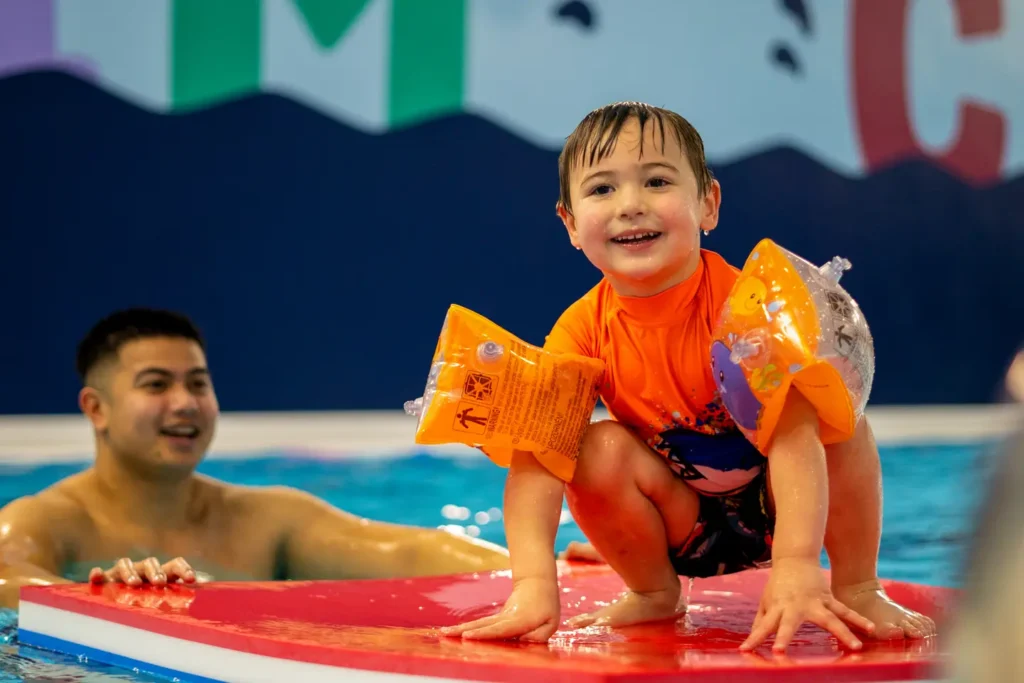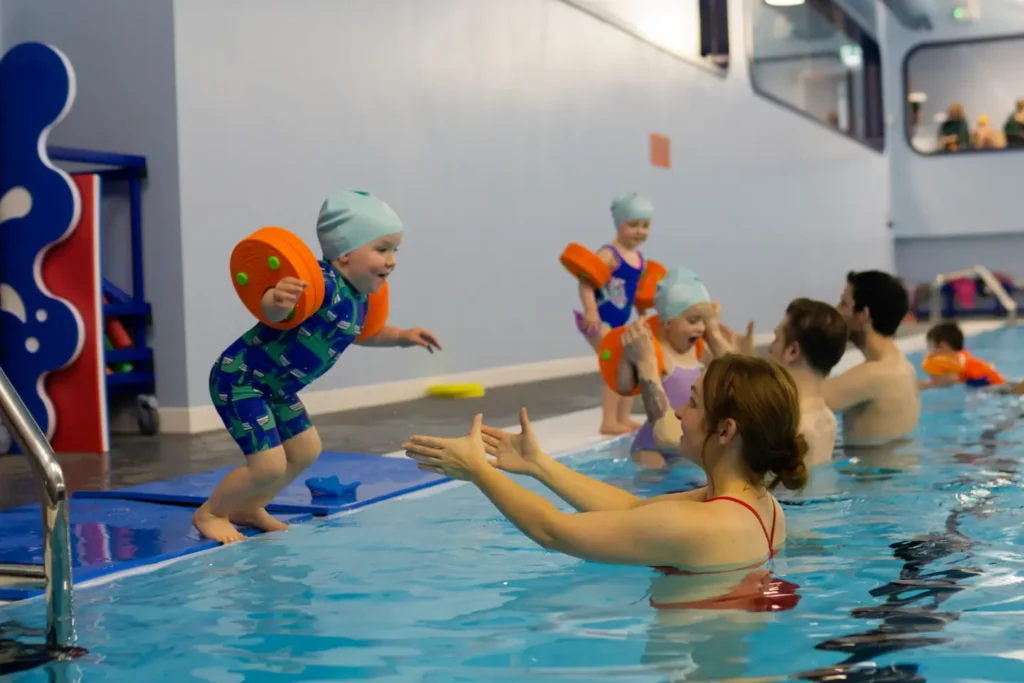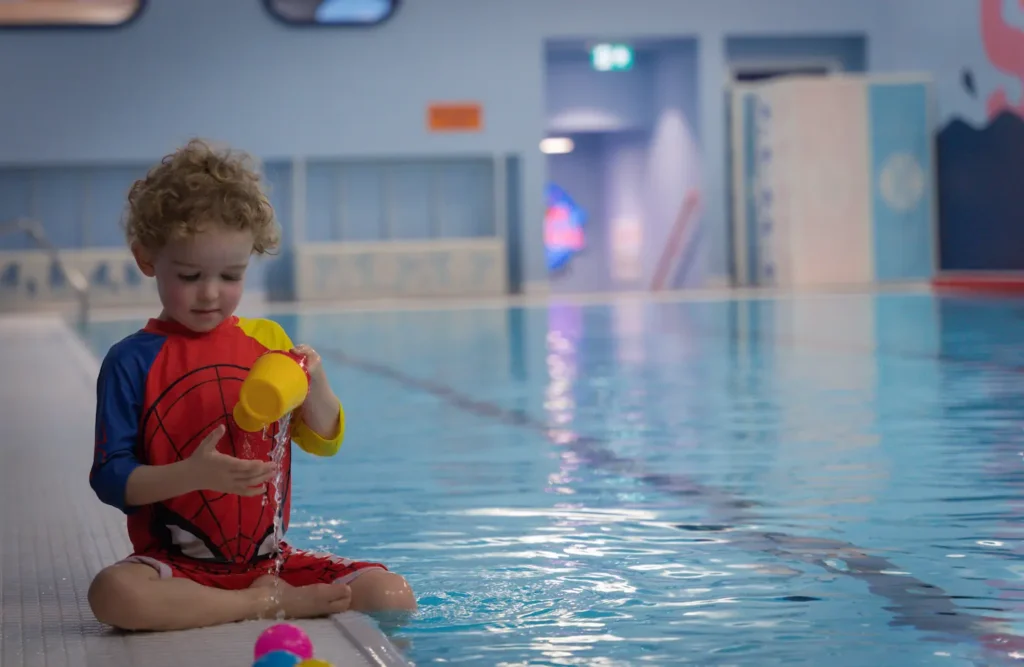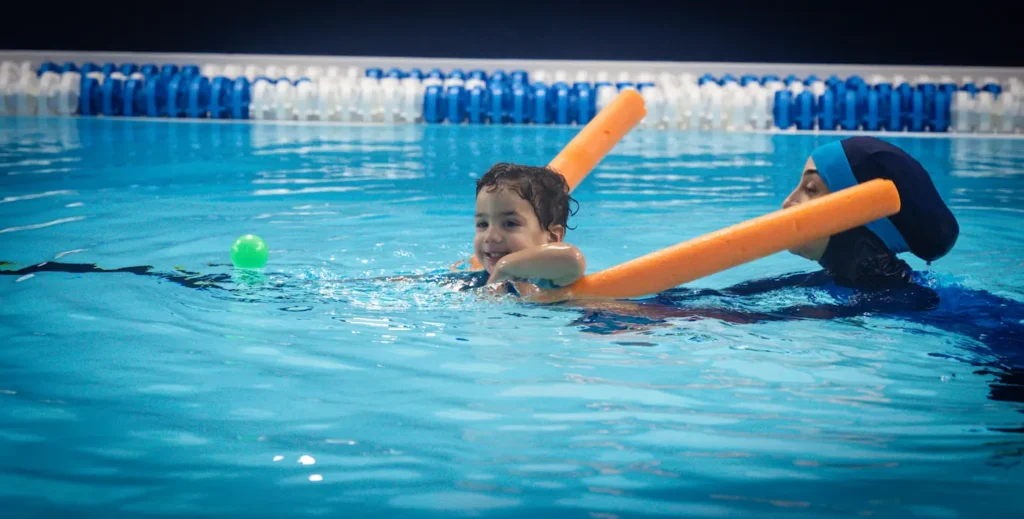Play is the best way that babies and pre-schoolers learn and retain new skills. In the first 1,000 days of a baby’s life, their brain will form connections (synapses) at an astounding rate of up to 1,000 every second! This is the only time connections will be made at this lightening pace.
It’s a scientific fact that children learn through play. Dr Karyn Purvis reported that scientists have found that it takes approximately 400 repetitions to create a new synapse in the brain – unless it is done with play. Then it only takes between 10–20 repetitions.
If children play as much as they can in the first three years of their life, imagine how many skills they will have when they are older!
How does play help babies and children?
Play helps children develop cognitively, physically, socially and emotionally. Let’s look at each of these in turn.
Cognitive benefits
Through play, children learn how to interact. They develop the abilities to explore, understand cause and effect, help memory function, and develop critical thinking. They begin to understand their role in the world.
Using their senses, curiosity develops, and their imagination takes them to a whole new place to explore and create. They learn how pieces fit together.
For example, when babies learn to do a forward dip from a raft in the pool, their face may go under, but it comes up again (cause and effect). They can pretend they are on a deep-sea mission to count the fishes!
When pre-schoolers explore how they float using aids, they begin to understand how their body moves in the water. They can pretend they are weightless, exploring the moon!

Physical benefits
Play is often a full-body activity that helps develop fundamental movement skills. There are three main skills that are built up:
- Locomotor, e.g. walking, jumping and swinging
- Manipulative, e.g. catching, throwing and kicking
- Stability, e.g. stretching, balance and turning are all developed.
Developing these physical skills translates to progress in the core aquatic skills in the water.
For example, younger babies can swing in the cradle hold as they ‘swim with the ducks’. Toddlers can throw and catch balls to each other ‘playing water polo on sports day’. And pre-schoolers can ‘walk the plank and jump into the sea after being caught by the pirates’!
Social benefits
Playing with other babies and children allows interactions where they learn social expectations and rules. They learn to listen, compromise and wait their turn.
For instance, babies collect toys to put in the big toy box as an activity together – there’s enough for everyone! Pre-schoolers wait until it’s their turn on the raft ship, teaching them a valuable safety lesson as well.

Emotional benefits
Play allows babies and children to understand and process their emotions. For example, if they see another baby with a toy they want, they may feel sad and angry. Learning to take turns playing with the toy helps babies and pre-schoolers regulate how they feel. Play also helps build confidence and encourages the development of their identity and self-esteem.
Taking turns to collect parts to make up a funny face on a float helps to teach emotional regulation. Another great example of having fun and learning through play.
What games can we play in the water?
Babies are interested in faces. They love a game of peek-a-boo, which teaches them about object permanence. They love contrasting colours and textures, and things that make a noise (crinkling a lifesaving blanket). Babies see red and green first so may gravitate towards those colours initially. Let them hold a small ball, and let them see a waterfall from a watering can. Talking while you play lets your baby hear language to aid them in their linguistic skills, too.
As a baby gets older, they will be interested in pretend play. They want to solve puzzles and imagine. Let’s be pirates! Let’s explore the jungle! Their imagination lets them role-play to transport themselves into a fantasy world. There they can be anything they want to be, for example, a pirate, a princess, or a character from a children’s programme like Paw Patrol.

Maurice Sendak, writer and illustrator of ‘Where The Wild Things Are’, notes that ‘children do live in fantasy and reality; they move back and forth very easily in a way we [adults] no longer remember how to do.’ So, the longer you can keep imagination developing in babies and pre-schoolers, the more beneficial it is for them!
In summary
Play is the best way to help babies and pre-schoolers learn, develop, build confidence and promote their well-being.
The way they play will change over time as they grow and develop, but through unstructured and structured play their skills will continue to progress as they have fun learning. Give their imagination as much room to grow as possible and watch how play gives them the freedom to explore and find out about so many things.
What will you play today? Will you make some music by tapping a dive stick on a small float? Will you build a Duplo brick tower for the duck princess? Will you go on a superhero water adventure? Playing together makes fantastic memories!
See if you can find a baby class at Swim Central that suits you. We would love to have you come and play with us in the water!

